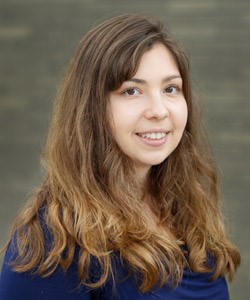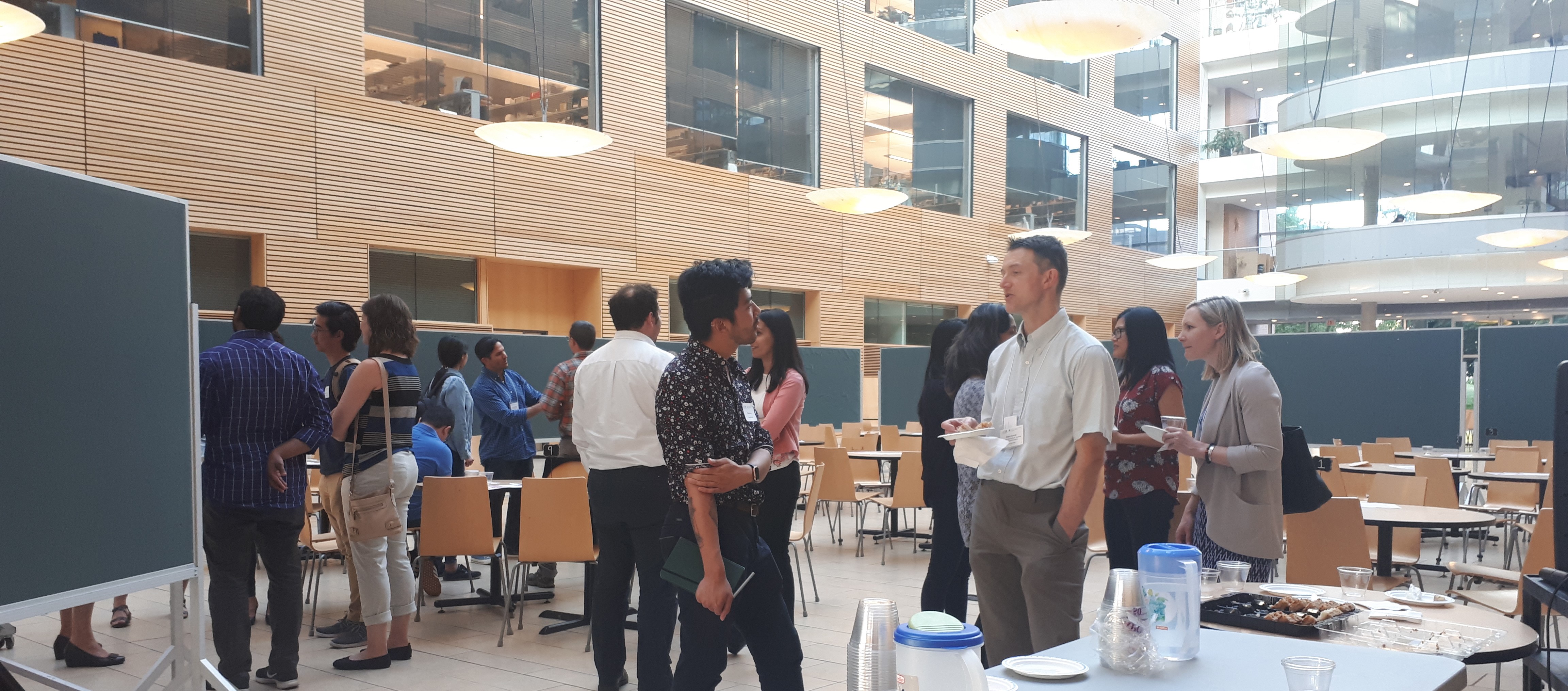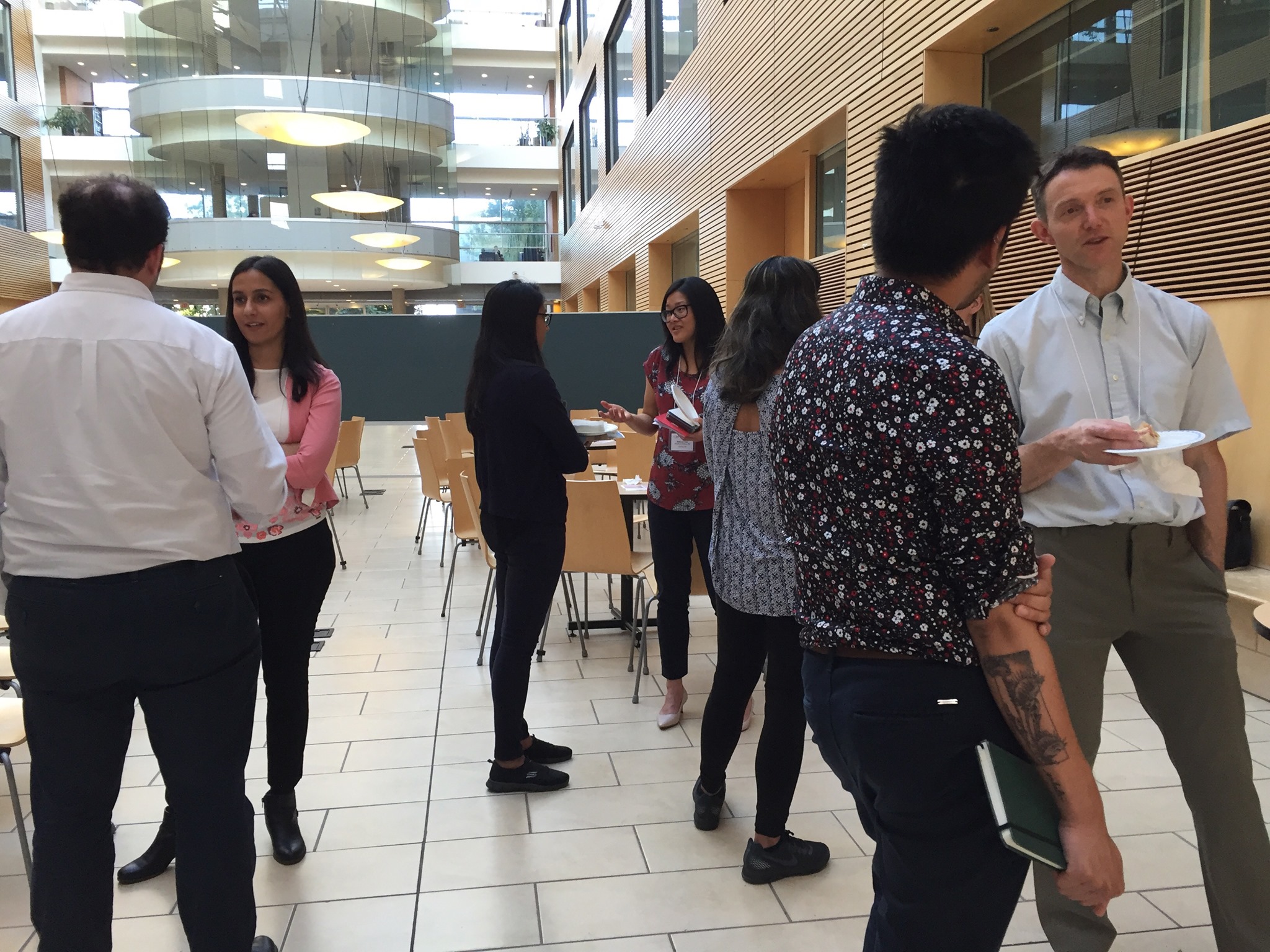 By Corrie Belanger, PhD Candidate, Hancock Lab
By Corrie Belanger, PhD Candidate, Hancock Lab
On June 13, the Centre for Blood Research and the Department of Microbiology and Immunology teamed up to host another successful career night for UBC students, postdocs and staff. UBC trainees had the opportunity to interact with 10 guest mentors who are currently working in various scientific careers. The visiting scientists introduced themselves to the trainees in small groups and participated in a productive hour of speed mentoring, followed by refreshments and the chance to network more closely. Comprising mainly graduate students and postdoctoral fellows, the casual yet informative event was well attended with >50 enthusiastic young scientists, all of whom sparked enthusiastic conversation and networking. For the night’s professional participants, the organizers did a fantastic job in selecting mentors with insight into many different career paths. Representatives from occupations involving design and instruction of education programs, biotechnology positions and policy and government were all present. If you didn’t make it to the event this year but want to know what you missed out on, here is a sneak peak of the professional representatives from our science community and the knowledge they had to share.

Speed Mentoring RoundTable discussions
Many mentors attending the event hold jobs in assorted areas of science education, and provided diverse perspectives and advice. The interesting trajectory that Kate Campbell took to get to her position in Continuing Professional Development at UBC for instance, might encourage researchers to gain skills outside of their main area of expertise. Having pursued her interest in zoology as an undergraduate, Kate later switched fields altogether and took fine arts before finding a Masters of Science in Biomedical Communications. She has identified a way to meld these fields in her current position as a professional biomedical communicator and instructional course designer where she creates textbook illustrations as well as visual tools to help healthcare practitioners understand and communicate medical and science topics. Kate’s experience of using her interests both in science and elsewhere to find a unique education position at UBC highlights how diverse skill sets and interests can be an asset to finding careers in science. David Oliver, Prashant Kumar, Deborah Chen and Alex Chattwood also work at different levels to develop course content and teach science. David is an instructor in the department of Microbiology and Immunology where he teaches and develops undergraduate courses. He has a wealth of knowledge for individuals interested in this area. Prashant and Deborah are two mentors who fast-tracked their careers early on in graduate school. Deborah currently works for the Centre for Teaching, Learning and Technology (CTLT) at UBC, while Prashant is a biology instructor and researcher at Langara College. Both started teaching/ mentoring while they were still in graduate school. Deborah’s advice to graduate students thinking about their future is to “set aside two hours every day for job search activities” whether this is to research jobs available, update resumés or network and connect with others in the field.
If you’re looking for a more traditional position in industry, this year’s career night also had some great representatives from biotech. Akshita Puri from Merieux Nutrisciences, Ismael Samudio from Virogen Biotech Ltd and Marta Szabat from AbCellera Biologics attended the evening to share their experiences in the biotech industry. After a decade following her research interests, Akshita moved into the biotech industry where she was able to find a career managing operations of a microbiology lab at Merieux. Ismael has a wide range of experiences from genetics to pharmacology and toxicology to immunotherapy and drug development. He currently works as the Senior Director of R&D for Virogen. Marta is an alumna of UBC, who used to study pancreatic beta cell biology in diabetes. She started working for AbCellera as a senior scientist in 2015 and now leads several development and partner projects.

Mentors & participants chatting during the networking session
Policy and government positions are also options for trainees in science. Niniane Tozzi works for the UK Science and Innovation Network, in a job that might appeal to those either with or without a background in this field. Although her graduate degree was a Masters in Global Policy with a concentration in Natural Resource Management, Niniane now engages local science and innovation communities to facilitate international collaborations. She has a great deal of experience working with researchers and connecting the private sector to industrial associations, and works closely with scientists in similar positions to her own. Niniane recommends anyone interested in policy or science communication to take a look at government organizations where they can apply their PhD to improve international relations and collaboration. From a very different perspective of government employment, Simon Cowell from Canadian Food Inspection Agency (CFIA) provided an insightful look at the transition from academia to government research. Simon completed his postdoctoral research in genetic regulation of steroid pathways, transitioned into a position at a Vancouver Biotech, QLT, and then landed in a job at Health Canada as a lab specialist in the BC food safety laboratory. Simon’s perspective moving through academia, biotech and government has led him to conclude that, although the research can be similar, the atmosphere in these career positions is quite different. He says that biotech and government research positions often worry a lot less about funding and publications compared to academia, but there is an inevitable tradeoff for freedom of project design and execution. Ultimately, Simon believes working for CFIA is the best fit for his research interests, and provides a unique opportunity to explore other science routes.

Mentors & participants chatting during the networking session
Whether you are interested in science communication and education, industry, or policy and government, career night proved that there are many options out there for science professionals. Some common themes to be taken from the mentors’ advice include; diversifying your skill set, taking positions in different areas of science to discover what appeals to you, and becoming active in networking or skill-enhancing activities that can help you get noticed by professionals in careers that interest you. Please come to the next event to learn what interests you about careers in science. Thank you to the organizers from the CBR and the Department of Microbiology and Immunology who made this event possible, and to all of the mentors for taking the time to give us their perspectives on careers in science.


